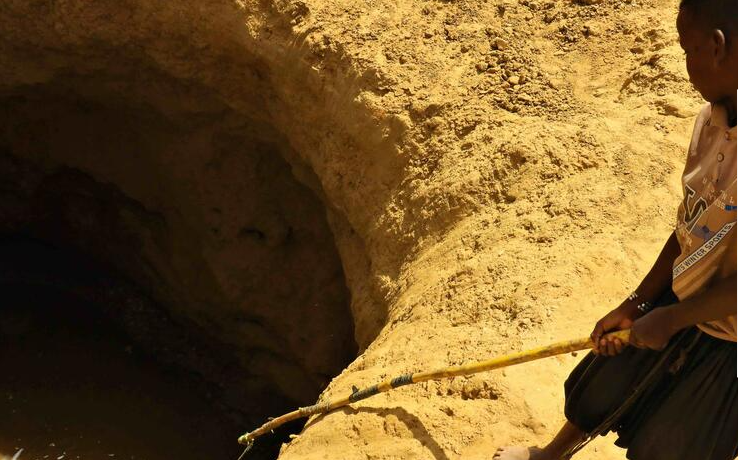News & Events
2024/04/19
Unprecedented Heatwave Ravages Sahel and West Africa: Human-Caused Climate Change the Culprit
A child fletches water from a well in Barkeol, Mauritania. Photo: IFRC
In late March and early April of this year, the Sahel and West African nations found themselves in the grip of unprecedented heatwaves. On April 3rd, Mali bore the brunt of this scorching onslaught, recording a staggering temperature of 48.5 degrees Celsius. Tragically, the Gabriel Tource Hospital reported a grim tally of 102 fatalities within the initial four days of April. Alarmingly, a significant portion of the deceased, nearly half, were aged 60 or above, with heat likely implicated in many of these untimely deaths. Regrettably, due to a dearth of comprehensive data in the affected regions, the true toll of this blistering heat remains elusive.
Attributable largely to the pernicious effects of climate change, induced primarily by the combustion of fossil fuels such as oil, coal, and gas, heatwaves have become an increasingly pervasive and intense phenomenon worldwide. To ascertain the precise impact of anthropogenic warming on the extreme temperatures witnessed in the Sahel and West Africa, scientists embarked on an exhaustive analysis. Employing rigorous peer-reviewed methodologies, these researchers scrutinized weather data and climate models to delineate the disparities between contemporary climatic conditions — characterized by approximately 1.2°C of global warming — and the comparatively cooler pre-industrial era.
The study scrutinized the five-day average of maximum daily temperatures in two distinct regions: one encompassing the southern territories of Mali and Burkina Faso, which bore the brunt of the searing heat, and a broader expanse comprising segments of Niger, Nigeria, Benin, Togo, Ghana, Côte d'Ivoire, Mauritania, Senegal, the Gambia, Guinea-Bissau, and Guinea, where temperatures soared well above 40°C.
The findings were unequivocal: both diurnal and nocturnal heatwaves across both regions would have been inconceivable were it not for human-induced climate change, fueled predominantly by the combustion of fossil fuels and exacerbated by activities like deforestation. Climate perturbations have rendered maximum temperatures approximately 1.5°C hotter in the nocturnal hours and 2°C hotter during the day in the Burkina Faso and Mali region while extending to an increase of 1.4°C in the five-day daytime temperatures across the broader region.
Reference: IFRC
